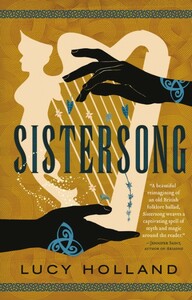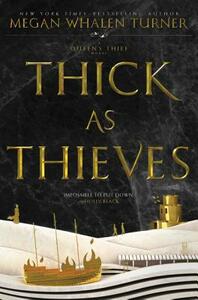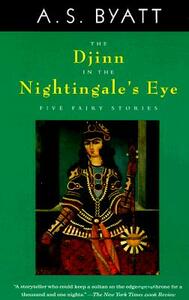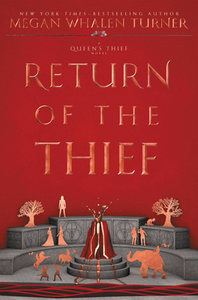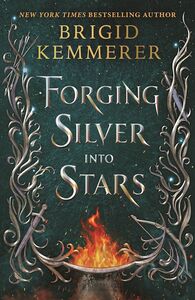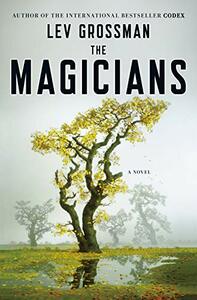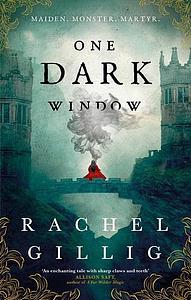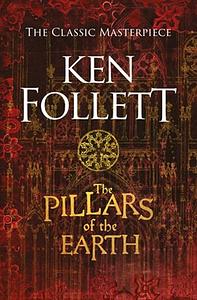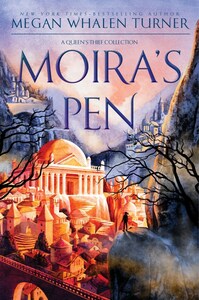Take a photo of a barcode or cover
theinquisitxor's Reviews (804)
I enjoyed this one much more than I thought I would! This book has been on my radar since it was released last year, and I decided to pick it up and give it a try. It's based off the folk ballad, The Twa Sisters, and is set in an early medieval Briton.
Some things I loved about this story:
-The Setting: I am always a little hesitant about books set in the middle ages, let alone the 5th century like this book is. I do think this book handled the historical period well, and this was set during a tumultuous period of British history- the Romans just left, the Saxons are invading, and Christianity is starting to spread. Also similar to the setting, the atmosphere was just right.
-A trans main character: I did not know before starting this book that one of the main characters would be trans, but I was very pleasantly surprised. The conceptualization of gender and someone switching genders during the early middle ages was an interesting topic for Holland to explore. There is a lot that we don't know about 5th century Briton societies, and we certainly don't know their thoughts on gender identity, so it gives the author a lot of agency to write whatever they want.
-The Magic: One of the main conflicts of this book is the clash between the old pagan religion vs the new Christianity. This reminded me at times of The Bear and the Nightingale, where a similar conflict takes place. The pagan magic and rituals were very interesting, and I wish that more survived of what these pre-Christian British societies actually were like.
Overall, this book was a pleasant surprise, and I ended up enjoying it quite a bit. The writing is fairly simple, and I think it would have benefited from more complex writing, but I still found it enjoyable. Holland's next book is titled The Wild Hunt, and I will definitely be picking that one up in 2023!
Some things I loved about this story:
-The Setting: I am always a little hesitant about books set in the middle ages, let alone the 5th century like this book is. I do think this book handled the historical period well, and this was set during a tumultuous period of British history- the Romans just left, the Saxons are invading, and Christianity is starting to spread. Also similar to the setting, the atmosphere was just right.
-A trans main character: I did not know before starting this book that one of the main characters would be trans, but I was very pleasantly surprised. The conceptualization of gender and someone switching genders during the early middle ages was an interesting topic for Holland to explore. There is a lot that we don't know about 5th century Briton societies, and we certainly don't know their thoughts on gender identity, so it gives the author a lot of agency to write whatever they want.
-The Magic: One of the main conflicts of this book is the clash between the old pagan religion vs the new Christianity. This reminded me at times of The Bear and the Nightingale, where a similar conflict takes place. The pagan magic and rituals were very interesting, and I wish that more survived of what these pre-Christian British societies actually were like.
Overall, this book was a pleasant surprise, and I ended up enjoying it quite a bit. The writing is fairly simple, and I think it would have benefited from more complex writing, but I still found it enjoyable. Holland's next book is titled The Wild Hunt, and I will definitely be picking that one up in 2023!
This is my favorite so far, I just adored reading it. The story is mostly a (b)romance cross-country trip, that's really all it is, but I couldn't put it down.
A collection fairy tale short stories from one of my favorite writers. I liked some of the stories more than others.
God what an ending. This book was everything I wanted it to be
Marlon James's Black Leopard Red Wolf was one of the most difficult, strange, and unique books I've ever read. I've been anticipating the next book in the trilogy, and finally got around to reading it this month. This book follows one of the main characters from the first book, but mostly focuses on her backstory and the development of her character.
This book was much more linear and generally easier to read and comprehend than the first one. I also enjoyed the female focused story of this book more too. I'm interested what the third book is going to be, because of the way that the first two books end.
This book was much more linear and generally easier to read and comprehend than the first one. I also enjoyed the female focused story of this book more too. I'm interested what the third book is going to be, because of the way that the first two books end.
This book was everything I could have dreamed of for a spin-off series.
I really enjoyed being back in the world Brigid Kemmerer created in ACSDAL and found the change of character POV refreshing while keeping the main characters from the first series still prominent.
The romance is super sweet and adorable, and I can't believe that the next book says release in 2025--Brigid! that is too long of a wait!!
I really enjoyed being back in the world Brigid Kemmerer created in ACSDAL and found the change of character POV refreshing while keeping the main characters from the first series still prominent.
The romance is super sweet and adorable, and I can't believe that the next book says release in 2025--Brigid! that is too long of a wait!!
DNF- I got like 20% through this book but I really don’t care about any of it. It’s definitely the type of book I should love: magic schools and portals, but I found myself bored and uninterested
3/5 stars. I was a tad bit disappointed in this one. I was hoping for more of Margaret Rogerson's Vespertine but got more of Hannah Whitten's For the Wolf instead. Not entirely my cup of tea, but there were still several things I enjoyed about this book.
The things I liked: Our main character, Elspeth has a nightmare/monster/demon thing in her head like a parasite from a magical infection she had as a child. This monster helps her and protects her, but her mind has never truly been her own. This concept is in the similar vein as Rogerson's Vespertine and it's a trope(?) that I've found I enjoy.
I also enjoyed the premise of the magic of this world. Long ago, The Shepherd King created a deck of cards, each grant the user different magical properties, and collecting the complete set of cards is the key to saving the kingdom. I felt like that was a very unique magic system and I don't think I've seen a writer base a magic system around a card deck before (except for instances of tarot)
This was definitely a moody, gothic vibes book, which created a delicious atmosphere. This should have been an October/November read for me, not something I read during the holidays. But, it is what it is.
I never felt super connected to any of the characters or the plot or really all that invested in the story. I found it somewhat predictable and there is a bit of insta-love which I can't stand. The main male love interest is Mr. tall-dark- and- handsome, and I kid you not, his name is Ravyn. Ravyn. Like Raven.
The things I liked: Our main character, Elspeth has a nightmare/monster/demon thing in her head like a parasite from a magical infection she had as a child. This monster helps her and protects her, but her mind has never truly been her own. This concept is in the similar vein as Rogerson's Vespertine and it's a trope(?) that I've found I enjoy.
I also enjoyed the premise of the magic of this world. Long ago, The Shepherd King created a deck of cards, each grant the user different magical properties, and collecting the complete set of cards is the key to saving the kingdom. I felt like that was a very unique magic system and I don't think I've seen a writer base a magic system around a card deck before (except for instances of tarot)
This was definitely a moody, gothic vibes book, which created a delicious atmosphere. This should have been an October/November read for me, not something I read during the holidays. But, it is what it is.
I never felt super connected to any of the characters or the plot or really all that invested in the story. I found it somewhat predictable and there is a bit of insta-love which I can't stand. The main male love interest is Mr. tall-dark- and- handsome, and I kid you not, his name is Ravyn. Ravyn. Like Raven.
4.5/5 stars.
I enjoyed this book quite a lot, and it checked a lot of boxes that I wanted checked. I was in the mood for a doorstopper historical fiction full of detail, action, and nuanced character work and that is exactly what I got.
The middle ages are my favorite historical period, and I felt like Follett did his research and was able to capture and create a solid image of the 12th century he is writing about. Follett isn't necessarily bringing anything new to the table, but certainly shows attention to detail and historical accuracy (up to the 1980s at least), but also manages to craft a world structured around the ideologies of the century and doesn't fall too hard into the trap of generalizing hundreds of years of history.
Life in the 1100s was different from life in the 1400s, and it is too easy for writers to just shrug and say "eh, it was the middle ages, nothing much changed" when lifestyle, cultural, religious, and political views were drastically different century by century. You wouldn't compare the 1800s to the 2000s, now would you? Follett does a good job of distinguishing the 12th century, and some of the societal, cultural, and religious practices that are relevant to that century. For example, Follett has women characters run their own businesses, whether that is Aliena who builds up her business from scratch, or other mentioned women who take over the business after their husbands die.
No one can accurately depict what living in the middle ages would have been like, there is too much we don't know, especially surrounding your average working class person. However, I do think Follett gives a decent depiction here. There's no correct answer, but I think he manages to craft a sound and solid world. I also liked how Follett displays his characters as no less smart than we are today. Some of his characters have the same level of intelligence, problem solving, and empathy as we do today, living in the 21st century. The characters are just working with less collective knowledge than we are. People have always been People, and I think this shines through with Follett's protagonist characters.
This is not perfect, and this story falls under a heavy male gaze (which was a little off-putting at first and also possibly a product of being written in the 80s), takes a very male-centered view of the world, and has several on-page graphic rape scenes. Things are not cheery, and Follett has several truly despicable characters that do horrible things.
Prior Philip was probably my favorite character and was a joy. I enjoyed reading all the main pov characters, even the antagonists (who I did not like) still gave compelling chapters and were just good examples of character work. I definitely am planning on reading the next book in the series set 200(?) years after this one.
I enjoyed this book quite a lot, and it checked a lot of boxes that I wanted checked. I was in the mood for a doorstopper historical fiction full of detail, action, and nuanced character work and that is exactly what I got.
The middle ages are my favorite historical period, and I felt like Follett did his research and was able to capture and create a solid image of the 12th century he is writing about. Follett isn't necessarily bringing anything new to the table, but certainly shows attention to detail and historical accuracy (up to the 1980s at least), but also manages to craft a world structured around the ideologies of the century and doesn't fall too hard into the trap of generalizing hundreds of years of history.
Life in the 1100s was different from life in the 1400s, and it is too easy for writers to just shrug and say "eh, it was the middle ages, nothing much changed" when lifestyle, cultural, religious, and political views were drastically different century by century. You wouldn't compare the 1800s to the 2000s, now would you? Follett does a good job of distinguishing the 12th century, and some of the societal, cultural, and religious practices that are relevant to that century. For example, Follett has women characters run their own businesses, whether that is Aliena who builds up her business from scratch, or other mentioned women who take over the business after their husbands die.
No one can accurately depict what living in the middle ages would have been like, there is too much we don't know, especially surrounding your average working class person. However, I do think Follett gives a decent depiction here. There's no correct answer, but I think he manages to craft a sound and solid world. I also liked how Follett displays his characters as no less smart than we are today. Some of his characters have the same level of intelligence, problem solving, and empathy as we do today, living in the 21st century. The characters are just working with less collective knowledge than we are. People have always been People, and I think this shines through with Follett's protagonist characters.
This is not perfect, and this story falls under a heavy male gaze (which was a little off-putting at first and also possibly a product of being written in the 80s), takes a very male-centered view of the world, and has several on-page graphic rape scenes. Things are not cheery, and Follett has several truly despicable characters that do horrible things.
Prior Philip was probably my favorite character and was a joy. I enjoyed reading all the main pov characters, even the antagonists (who I did not like) still gave compelling chapters and were just good examples of character work. I definitely am planning on reading the next book in the series set 200(?) years after this one.
3.5/5 stars
This is a collection of short stories, poems, authorial anecdotes, illustrations, and even a recipe. I enjoyed some of the short stories, hearing about what ancient artifacts MWT based things off in the books, and little glimpses of life before, during, and after the main series.
However, I felt like this has raised more questions than it gave answers, and of the answers it did give (or hint at) I found myself somewhat frustrated about.
I think my expectation of this book was a little off, as I was expecting more answers and short stories, but this is much more a collection of drabbles and ideas about the series that is very ambivalent.
This is a collection of short stories, poems, authorial anecdotes, illustrations, and even a recipe. I enjoyed some of the short stories, hearing about what ancient artifacts MWT based things off in the books, and little glimpses of life before, during, and after the main series.
However, I felt like this has raised more questions than it gave answers, and of the answers it did give (or hint at) I found myself somewhat frustrated about.
I think my expectation of this book was a little off, as I was expecting more answers and short stories, but this is much more a collection of drabbles and ideas about the series that is very ambivalent.
